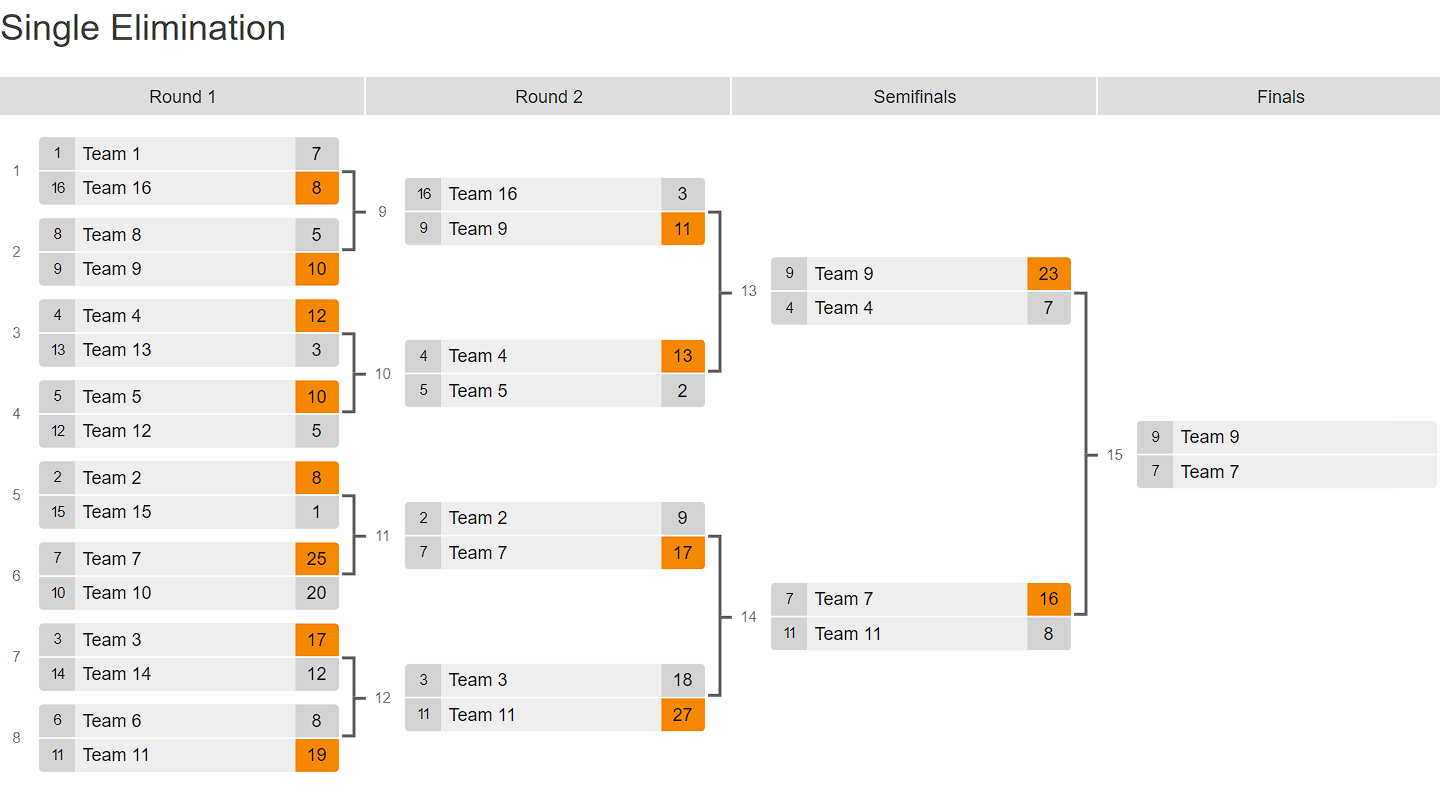[Part-2]How eSports Tournaments Come to Life: Tournament Formats

Hey Quester's!!
In our previous post, we explored the intricate process of organizing eSports tournaments, from selecting the games to awarding the prizes. We learned that game selection, tournament planning, venue arrangements, registration, promotion, and staffing are critical components of the organization process. Additionally, we highlighted the importance of preparation, setup, live streaming, commentary, and post-tournament reflection in ensuring the success of these events.
Now, let's dive deeper into the diverse tournament formats utilized in eSports competitions, drawing insights from past events like the iQOO All-Star Cup and iQOO Pro Series. Each format offers a unique experience for players and spectators, contributing to the excitement and competitiveness of the tournaments. Let's explore these formats and understand their impact on the eSports landscape.
Single Elimination:

In a single-elimination tournament, teams compete in a bracket where a loss results in elimination from the tournament. The winner of each match advances to the next round until only one team remains victorious. This format is known for its simplicity and intensity, with every match being a do-or-die showdown. We've seen this format in action in past tournaments like the iQOO Pro Series, where teams battled it out in thrilling single-elimination matches for ultimate glory.
Double Elimination:

Double-elimination tournaments offer teams a second chance after an initial loss. Teams compete in two brackets – the winner's bracket and the loser's bracket. A loss in the winner's bracket drops a team to the loser's bracket, where they have another opportunity to advance. However, two losses result in elimination. This format ensures fairness and gives teams more opportunities to showcase their skills. Past events like the iQOO All-Star Cup have featured double-elimination formats, providing exciting twists and turns as teams fight their way through the brackets.
Round Robin:

In a round-robin tournament, every team plays against every other team in the tournament. Teams earn points based on their performance, and the team with the highest score at the end is declared the winner. This format guarantees that each team competes against all others, offering a comprehensive assessment of their abilities. The iQOO Championship Series has embraced the round-robin format, providing players with ample opportunities to showcase their skills and strategies in a series of matches against diverse opponents.
Swiss System:

The Swiss system is a hybrid format that combines elements of round-robin and elimination tournaments. Teams compete in multiple rounds against opponents with similar win-loss records. After each round, teams with similar records are paired against each other, ensuring competitive matchups. The iQOO Invitational Series has adopted the Swiss system, creating a dynamic and competitive environment where every match matters.
Playoffs:
Playoffs are the culmination of a tournament, where the top-performing teams from the initial stages compete in a series of elimination matches to determine the ultimate champion. Playoffs often feature intense matchups, high stakes, and memorable moments that showcase the best of eSports competition. In past tournaments like the iQOO Masters Cup, playoffs have been the highlight of the event, with teams giving their all to claim victory and cement their legacy in eSports history.
From single-elimination showdowns to round-robin battles, each tournament format offers a unique experience for players and fans. By embracing diverse formats and learning from past events, organizers continue to push the boundaries of eSports competition, creating unforgettable moments that captivate audiences worldwide.
Follow @Professor Nobody
#ProOfEsports2023
For Core eSports & Gaming related info.
Please sign in
Login and share

























